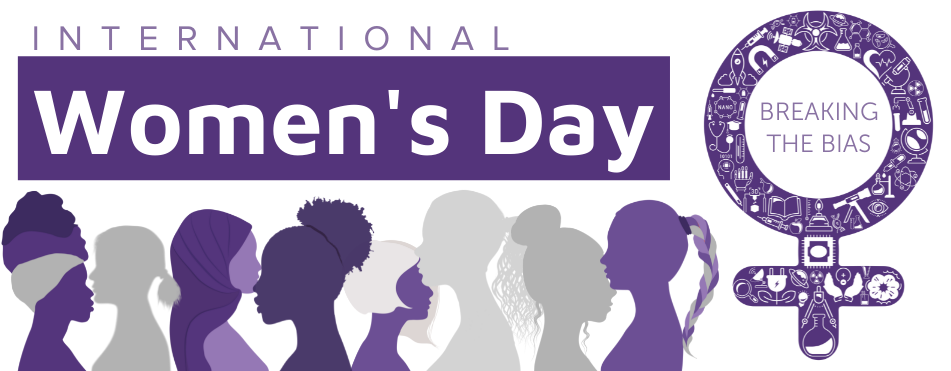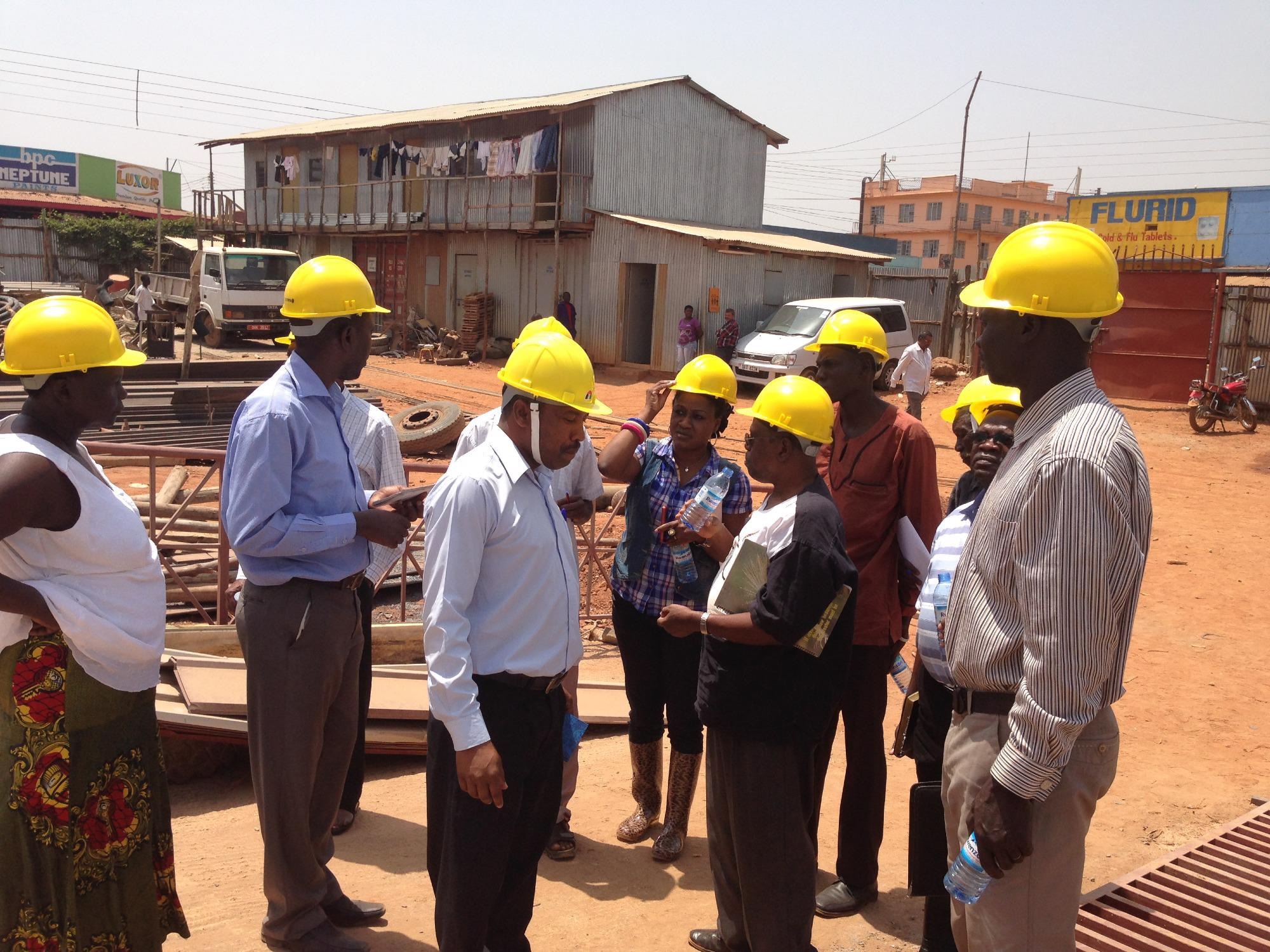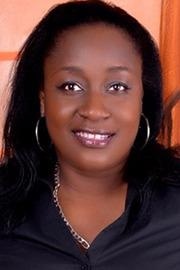
In the lead-up to International Women's Day 2022, AZoBuild spoke to Assumpta Nnaggenda Musana, an accomplished architect and urban planner who was also the first Ugandan woman to receive a Ph.D. in Architecture. We discussed her career, the participation of women in architecture in Uganda, and the women who inspired her.
Please can you introduce yourself and your professional responsibilities?
 I am called Assumpta Nnaggenda Musana, an architect and urban planner, and a senior lecturer at the College of Engineering, Design, Art, and Technology (CEDAT), School of the Built Environment at Makerere University. I lecture undergraduate and graduate students, including supervising graduate students’ research work. I am also involved in private practice with Technology Consults Ltd.
I am called Assumpta Nnaggenda Musana, an architect and urban planner, and a senior lecturer at the College of Engineering, Design, Art, and Technology (CEDAT), School of the Built Environment at Makerere University. I lecture undergraduate and graduate students, including supervising graduate students’ research work. I am also involved in private practice with Technology Consults Ltd.
What first drew you to architecture and urban planning, and what inspired you to pursue a career in this sector?
My father encouraged me to pursue the architecture course because I was interested in and talented at Fine Art. After my secondary education, he secured me a scholarship to study architecture in Russia through an establishment that was called the Uganda-Soviet Friendship Cultural Centre. The urban planning aspect came into my career options when I pursued my Ph.D. studies because my research and other studies were more to do with urban planning issues.
Both of your parents pursued careers in creative professions; do you believe this influenced your own path?
Certainly, both my parents were good at Fine Art at school. All my childhood I observed my father do his paintings and sculptural pieces, and my mother draw sketches for various purposes. My father also had a library filled with fine art and art-related writings; I found myself reading some books on modern art and architecture, which also boosted my interest in these fields.
You were the first woman in Uganda to obtain a Ph.D. in Architecture and Urban Planning. What is it like to be a pioneer in this field?
This accomplishment has made me more visible and I have been able to network with various professionals and organizations globally. Several young people in Uganda both within the architecture course and outside have told me that they wish to be like me, which I think is a good thing because it sustainably intensifies aspirations for the architecture course, especially for the female gender.
What is it that stops more Ugandan women from pursuing architecture to this level?
The architecture course is still young in the country - it was started at Makerere University in 1989, but was dominated by male students. Firstly, although of late more and more female students have joined, most of them spend time trying to establish their practices such that few pursue graduate studies.
Secondly, few have the finances that allow them to pursue education at this level.
What is the focus of your work as an urban planner and architect?
As an architect/urban planner, my areas of interest include researching human settlement, especially studying informal settlements and low-income housing in a bid to establish how the housing conditions can be improved for the wellbeing of low-income households.
What power do architecture and urban planning have to influence low-income housing and informal settlements for the better?
Architecture and urban planning have the power to influence the betterment of low-income housing if high density, adequate and affordable housing solutions for low-income households are developed, and the sprawling nature of low-income housing and informal settlements is prevented.
You are currently a lecturer at Makerere University; how do you balance teaching with your own work? Do you enjoy it?
Lecturing being a timetabled activity allows for ample flexibility. I carry out other activities like involvement in private practice and grants application in between lecture time. It is lots of fun interacting with young people (students), there is a lot to learn from them, and it makes one feel like a child again.
Looking back over your career, are there any roles or moments that stand out to you as having been particularly significant or enjoyable?
The most enjoyable moments that I recall were in Sweden while pursuing my Ph.D. studies; we used to have seminars as a way of having our progress checked. During these sessions, lecturers would interact freely with us as students, and we would hold discussions and have coffee together. It was very enriching.
Many individuals have experienced additional hurdles in their professional careers due to their ethnicity and gender. Is this something you have experienced, and what more could be done to prevent and address such biases?
I did experience ethnicity issues during my studies in Russia and the Ukraine where I pursued my Master's degree in Architecture, and in Sweden where I did my doctoral studies. Such segregation will wane (I guess) once more people in the West become well-traveled.

Assumpta at a building site
Do you have any advice for young women or girls who wish to pursue a career in architecture or urban planning?
Young women who wish to pursue a career in architecture and urban planning should know that the course is intense and that they need to manage their time well so that they do not lag behind and thus lose interest in the course. It is okay to mix work and play but it is important to stay on course.
Are there any particular women in architecture who inspire you?
Zaha Hadid is one female architect who has inspired me. I have read about her and her works with keen interest. How she emerged from being a conceptual architect to her works being realized has always amazed me. Another woman in architecture who inspires me is my sister Regina Nnaggenda, it is amazing how she skillfully and effortlessly (seeming) puts her ideas together to develop different schemes.
Do you have any research or architectural projects currently underway?
I am finalizing a research project titled Women and Housing funded by the Government of Uganda through Makerere University Research and Innovations Fund (grant number MAK-RIF RIF 1/CEDAT/014). The research was about studying a government-provided low-income housing area, where the houses are being transformed, to see what kinds of lessons can be picked from the way women practice space.
I have also recently completed a design commission that was related to master planning one of our oldest hospitals, called Mengo Hospital.
How is the architectural field evolving in Uganda, and what do you hope to see happen in the next ten years?
The architectural landscape is changing from one that is being dominated by western models of glass-clad buildings to one where we see diversity in styles. Perhaps in the next ten years, we shall see instruments of our national identity emerging in the form of different traditional motifs appearing often in the architecture around us.
Finally, it is a hard question, but can you think of your favorite memory of being an architect?
While going through various immigration points in the West I would be asked what had brought me to whichever country, and the way those stern faces of the officers would lighten up when I said that I was an architect are moments that were appealing to me. I realized only then that an architect is held in awe.
About Assumpta Nnaggenda-Musana
 Assumpta Nnaggenda Musana is an Architect-Urban Planner with 24 years of teaching experience in housing and urban development concerns in developing countries. Her areas of interest include informal settlements upgrading, regularising land tenure in informal settlements and land titling, informality and urban life, capacity building and participatory upgrading, design aspects of upgrading intervention, gender and housing, and basic infrastructure development in informal settlements. Assumpta studied Architecture at the Kharkov State University of Civil Engineering and Architecture in Ukraine, where she attained her Bachelor's and Master of Science Degrees in Architecture. She holds Licentiate and Doctor of Philosophy Degrees in Architecture and Urban Planning from the Royal Institute of Technology (KTH) in Stockholm, Sweden.
Assumpta Nnaggenda Musana is an Architect-Urban Planner with 24 years of teaching experience in housing and urban development concerns in developing countries. Her areas of interest include informal settlements upgrading, regularising land tenure in informal settlements and land titling, informality and urban life, capacity building and participatory upgrading, design aspects of upgrading intervention, gender and housing, and basic infrastructure development in informal settlements. Assumpta studied Architecture at the Kharkov State University of Civil Engineering and Architecture in Ukraine, where she attained her Bachelor's and Master of Science Degrees in Architecture. She holds Licentiate and Doctor of Philosophy Degrees in Architecture and Urban Planning from the Royal Institute of Technology (KTH) in Stockholm, Sweden.
Assumpta is renowned in Uganda as the first female to hold a Ph.D. in Architecture. She has done research and carried out consultancies on low-income housing, including urban development. Most of her accomplished assignments have particularly been on understanding how low-income households build, make use of and value their living environments. She has also collaborated and consulted with/for Government Ministries, the UN and other local and international agencies, and national and international NGOs. The consultancies have included commissioned research, evaluations, project development, and write-ups.
She was nominated to the National Committee (Uganda) where she was able to be engaged in urban and human settlement participatory consultative forums that formulated the national report on Habitat III. She was appointed by the Chairperson National Planning Authority (NPA) of Uganda to provide technical advice on the “Housing and Human Settlements” sub-sector thematic paper, which was included in the National Development Plan.
She has published several papers on informal housing in Uganda, her recently completed publication is entitled “Housing and Human Security in Kampala, Uganda”, which emphasizes the vulnerabilities of low-income households.
In her free time, Assumpta likes to go Salsa dancing and is an avid music lover.
Banner Credits: Melitas & M.Style / Shutterstock
Disclaimer: The views expressed here are those of the interviewee and do not necessarily represent the views of AZoM.com Limited (T/A) AZoNetwork, the owner and operator of this website. This disclaimer forms part of the Terms and Conditions of use of this website.